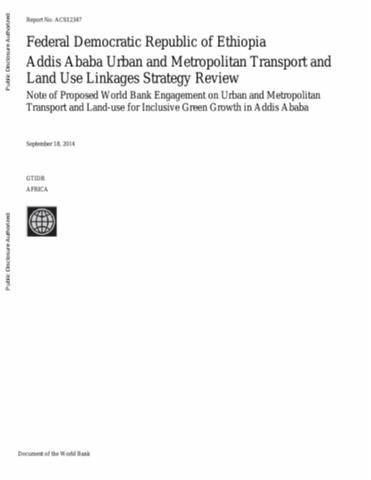The World Bank is a vital source of financial and technical assistance to developing countries around the world. We are not a bank in the ordinary sense but a unique partnership to reduce poverty and support development. The World Bank Group has two ambitious goals: End extreme poverty within a generation and boost shared prosperity.
- To end extreme poverty, the Bank's goal is to decrease the percentage of people living on less than $1.25 a day to no more than 3% by 2030.
- To promote shared prosperity, the goal is to promote income growth of the bottom 40% of the population in each country.
The World Bank Group comprises five institutions managed by their member countries.
The World Bank Group and Land: Working to protect the rights of existing land users and to help secure benefits for smallholder farmers
The World Bank (IBRD and IDA) interacts primarily with governments to increase agricultural productivity, strengthen land tenure policies and improve land governance. More than 90% of the World Bank’s agriculture portfolio focuses on the productivity and access to markets by small holder farmers. Ten percent of our projects focus on the governance of land tenure.
Similarly, investments by the International Finance Corporation (IFC), the World Bank Group’s private sector arm, including those in larger scale enterprises, overwhelmingly support smallholder farmers through improved access to finance, inputs and markets, and as direct suppliers. IFC invests in environmentally and socially sustainable private enterprises in all parts of the value chain (inputs such as irrigation and fertilizers, primary production, processing, transport and storage, traders, and risk management facilities including weather/crop insurance, warehouse financing, etc
For more information, visit the World Bank Group and land and food security (https://www.worldbank.org/en/topic/agriculture/brief/land-and-food-security1
Resources
Displaying 1271 - 1275 of 4907West Bank and Gaza Investment Climate Assessment : Fragmentation and Uncertainty
This Investment Climate Assessment (ICA)
seeks to evaluate the conditions under which the Palestinian
private sector currently operates in the West Bank
(including East Jerusalem) and the Gaza strip. This
assessment is both an update and expansion on a similar
assessment undertaken by the World Bank in 2006. As such, it
provides both a snapshot of the investment climate in 2013,
as well as a longitudinal view of what has changed in the
Embedding Social Performance Management in Financial Service Delivery
After decades of growth and
experimentation, financial service providers (FSPs) have
learned that to achieve financial inclusion and generate
benefits for lower-income clients, one must be
customer-centric. The products should be designed to help
the poor improve lives, and service delivery must be
responsible, transparent, fair, and safe. Decision-making at
each level of the business should place customers at the
Tanzania : Productive Jobs Wanted
Over the past 18 months, the World Bank
has been working on a comprehensive plan to address the
challenge of productive jobs in Tanzania. This study
represents a step towards a better understanding of how to
promote job creation in Tanzania. Indeed, the growth of
productive jobs is vital for alleviating poverty and
promoting shared prosperity - two important goals of
Tanzania's economic strategy. This booklet highlights
Addis Ababa Urban and Metropolitan Transport and Land Use Linkages Strategy Review
Since 2004 Ethiopia has experienced strong and generally broad-based real economic growth averaging 10.7 percent per annum. It is one of the most populous countries in the world, but it is not highly urbanized. Nevertheless, urbanization in Ethiopia is taking place rapidly, and is expected to increase over the coming few decades. Addis Ababa, is its commercial and political center and exemplary of the rapid urban growth of Ethiopia. The rapid urban and metropolitan growth in Addis Ababa is exacerbated by poor planning and land-use, inadequate infrastructure, and chronic housing shortage.
Kazakhstan Legislation for Allocation of Mining Exploration Rights : Report 1. Allocation of Exploration Rights for Mining in a Sample of Major Global Mining Countries
This study has been undertaken to
provide input to the Government of Kazakhstan on mineral
exploration policy. The purpose is to offer advice for
policy reform in the mineral sector. It examines best
practices in licencing and regulation for mineral
exploration. It will review common best practices which
pertain to mineral exploration on a world-wide basis. It
will also provide examples of countries which have







